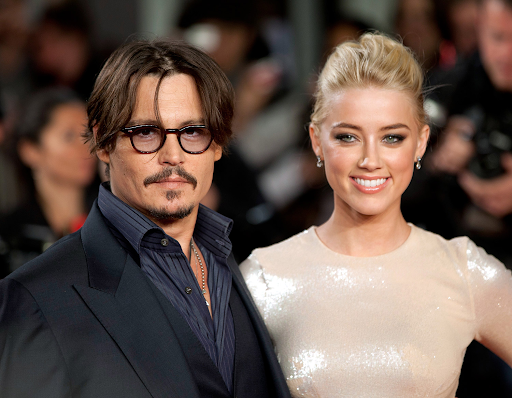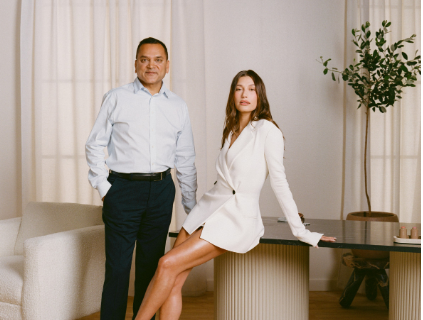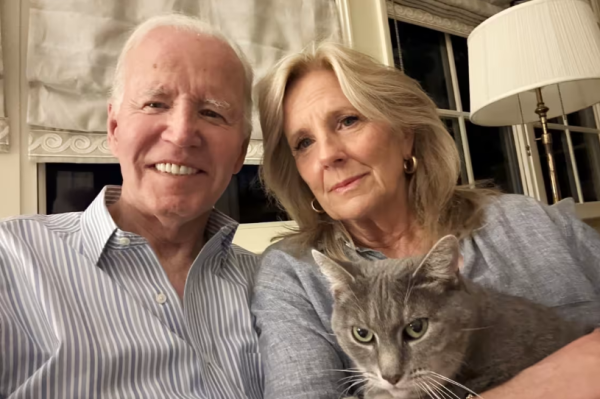Why Does the Internet Hate Amber Heard So Much?

Image via John Phillips/Getty
Anyone who’s been on the internet in the past few weeks has heard about Depp v. Heard. The defamation case is over an op/ed that Amber Heard wrote for the Washington Post, and takes place at the Fairfax County Circuit Courthouse. Heard wrote that she was a victim of domestic abuse, and while she never said his name, it seemed implied that the abuse was at the hands of Johnny Depp. Now he’s taking her to court, and the trial is perfect for online celebrity culture: two famous partners, live streams of all the drama, and an obvious victim. Nevertheless, the situation isn’t as clear cut as it may seem.
Female abusers are rarely heard of in the media, often because men feel embarrassed about their situation or fear they won’t be believed. This case is an important one, as it depicts a man’s experiences in an abusive relationship. If Depp wins the case, it could pave the way for other male victims of domestic violence to speak out and reduce the social stigma abused men face.
It helps that Depp is an incredibly famous actor with a loyal legion of fans who revere him, but unfortunately, many have been showing that loyalty in the wrong way. Depp’s supporters have come out of the woodwork in droves, taking any opportunity to discredit, mock, and attack Heard. In their efforts to refute Heard’s statements, internet users have taken to their keyboards and screens in full force. It seems as though many people view the defamation case as entertainment, and scrolling through TikTok, it is not uncommon to see edits of Depp’s funny moments during the trial, or analysis of Heard’s slip ups.
The trial has even taken precedence over national news, and when coverage of the leaked Supreme Court draft opinion on abortion aired on social media, comments were filled with the bored responses of users who wanted to see more of the trial. This was somewhat alarming to see, as one event seems to have a much more drastic effect on the people of the U.S. than the other. No matter the outcome of the case, both parties will ultimately end up okay, with copious amounts of money and resources to fall back on. The same cannot be said for the many women who live in states where the government may severely restrict or outright ban their right to bodily autonomy.
Unsettlingly enough, it seems as though most of the backlash against Heard stems from society’s ingrained hate for women. Is it a surprise that domestic abuse cases occur everyday, but many people want to jump into the fray when the abuser is a woman? When musicians R. Kelly, 6ix9ine, and Chris Brown were accused of abuse (arguably of a much more violent nature), many people claimed it was important to separate the art from the artist. Yet now that Heard is on the stand, people are quick to bash the content that she’s been a part of. One could argue that it’s justice for how the media unfairly treated Depp in 2016, but the next time that a popular and influential man is accused of abuse, will people be so eager to hold their ground?
The content viewed on social media only furthers the idea that people are looking for views by attacking Heard, and the rampant online hate has inevitably led to the spread of misinformation. Accounts have posted tweets exclaiming that Heard paused during her testimony to allow photographers to capture her tears, and uploaded videos where they rage at her sneaking a bump of cocaine while on the stand (which has been proved false). These people make it clear that the issue was never Heard’s domestic violence, but the chance to slander a female figure.
While the trial is certainly a dramatic and murky affair, it seems that viewers need to be reminded of the fact that both parties are real people and this case will have impactful ramifications. This is a significant case that could highlight the importance of speaking up about female abuse, but it could also serve as more ammunition against women. Painting one side as the villain while glorifying the other is a slippery slope, and the backlash against Heard in this case could set a precedent, making it all too easy for women to be called liars when they speak up about abuse. It is important that Heard is not allowed to get away with her abusive actions, but it is also important that this trial does not become fuel for anti-feminist rhetoric.

Emmalina is currently a Senior at South Lakes High School and Co-Editor in Chief of the Sentinel. This is her 3rd year writing for the newspaper, and she...


















Laura • May 28, 2022 at 1:04 am
I think the vitriol is from the released recordings that showcases Amber abusing Johnny. One of which Amber is saying: “Oh I wasn’t punching you Johnny, I was hitting you, stop being a big baby, I was just hitting you.” I dunno but that sounds like domestic violence. If Johnny had been on recording telling Amber, “Oh stop being a baby, I was hitting you not punching you” he’d be in jail. Not sure why Amber gets a pass for domestic violence? Another recording was the Australia incident where she said she was SA, physically assaulted, and dragged through glass over a 3 day period. The full audio recording has her, their doctor, their nurse, the house manager, the bodyguard all discussing what she’d just done to Johnny – amputate his finger by throwing something. Amber, after her hysterics, can be heard quite calmly asking questions and getting ready to pack because the doctor wanted her away from Johnny. If she’d been violated the doctor and nurse would have attended to her. The only thing they gave her was an rx to calm her down. There’s other recordings, released two years ago, that has Johnny consistently running away from fights and Amber consistently instigating them and admitting to hitting him. I’m an abused woman. Amber Heard triggers me. She is the epitome of my male abusers. Let’s stop thinking women can’t be physically violent.